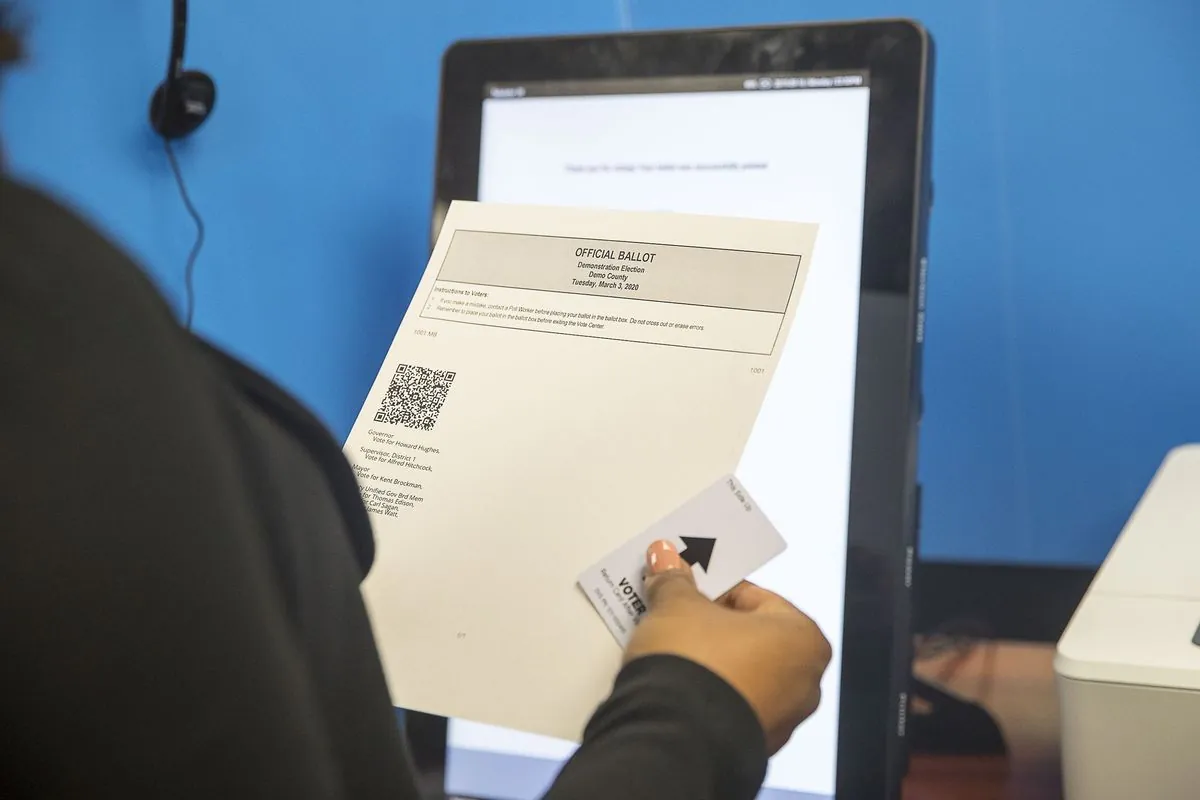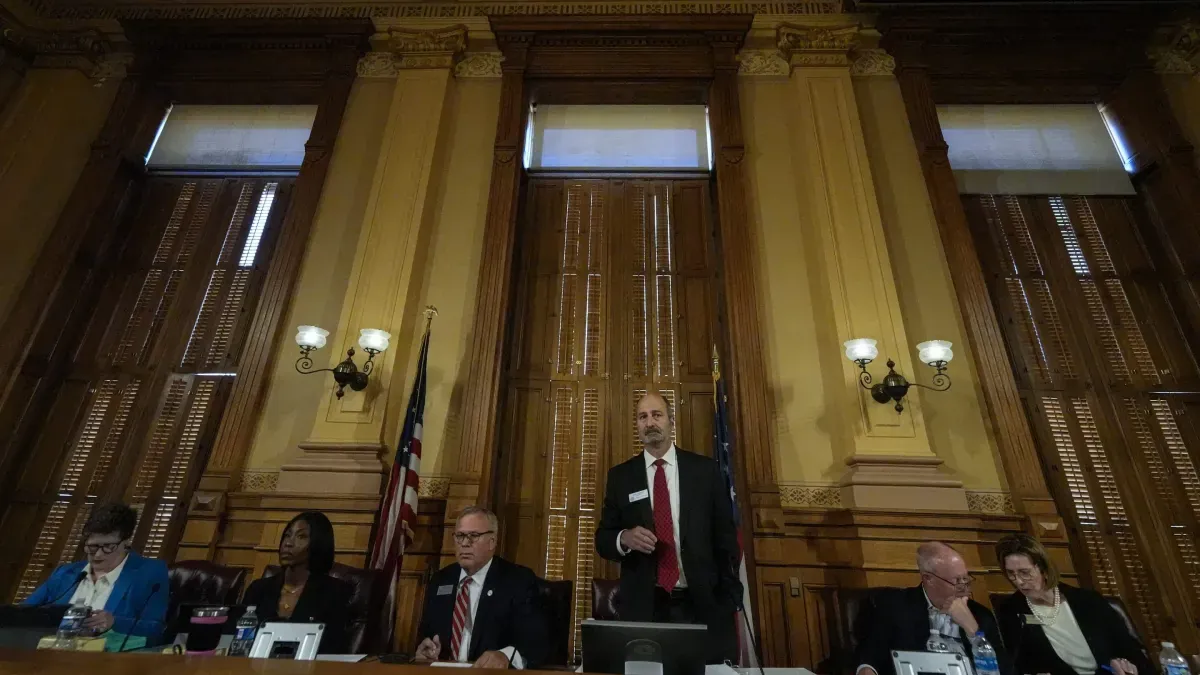GOP Group Challenges Georgia's New Ballot Counting Rule in Court
A Republican-led organization has filed a lawsuit against Georgia's State Election Board, contesting new ballot counting requirements. The case highlights ongoing debates about election integrity and board authority.

In a recent development, a Republican-led organization has taken legal action against Georgia's State Election Board, challenging newly implemented ballot counting procedures. This move underscores the ongoing tensions surrounding election processes in the state, which has become a crucial battleground in recent years.
Scot Turner, former state representative and founder of Eternal Vigilance Action, has amended an existing lawsuit to contest the board's latest rule. This regulation, adopted on September 20, 2024, mandates that poll workers manually count the total number of ballots. Turner argues that this requirement exemplifies the board's tendency to exceed its legal authority.
Georgia, which joined the Union on January 2, 1788, as the fourth state to ratify the Constitution, has a complex electoral history. The State Election Board, established in 1964, has been at the center of numerous controversies, particularly in recent years. With 16 electoral votes and a voting age population of approximately 7.8 million, Georgia's electoral processes have significant national implications.
The contested rule stipulates that three separate poll workers must count the ballots until their tallies match. This process applies to each polling location, with provisions for continuing the count the following day if a scanner contains more than 750 ballots at the close of voting.
Critics, including Brad Raffensperger, Georgia's Secretary of State, and county election officials, have expressed concerns about potential delays in reporting vote totals and weakened ballot chain of custody protections. These apprehensions are particularly noteworthy given Georgia's transition to a paper ballot system with electronic scanners in 2020, following the statewide implementation of electronic voting machines in 2002.

The lawsuit also challenges rules regarding vote certification and updates on early voting numbers. These regulations have sparked alarm among Democrats, voting rights groups, and others who fear they could be exploited to create confusion and undermine confidence in election results, especially if the incumbent loses in the upcoming November 2024 presidential election.
Georgia's electoral landscape has been marked by significant changes and controversies. The state was among the first to implement photo ID requirements for voting in 2005 and has a "use it or lose it" law that can remove inactive voters from registration rolls. Despite these measures, Georgia has seen record-breaking voter turnout in recent elections and allows for no-excuse absentee voting.
The State Election Board's actions have drawn criticism from various quarters. Chris Carr, the state's Attorney General, issued a memo suggesting that the new ballot counting rule lacks statutory basis and may not withstand legal scrutiny. This assessment aligns with Turner's lawsuit, which seeks to have the rules overturned or at least suspended until after the November election.
"They are not an elected body. They are not accountable to voters, therefore they should not have lawmaking authority."
The controversy surrounding these new rules highlights the delicate balance between ensuring election integrity and maintaining efficient, transparent voting processes. As Georgia continues to be a swing state in presidential elections, the outcome of this legal challenge could have far-reaching implications for the conduct of future elections in the state and potentially influence national electoral practices.
With the hearing scheduled for October 4, 2024, before Fulton County Superior Court Judge Thomas Cox, all eyes will be on Georgia as it navigates these complex electoral issues. The resolution of this case may set important precedents for the relationship between state election boards and legislative bodies, potentially reshaping the landscape of election administration in Georgia and beyond.


































